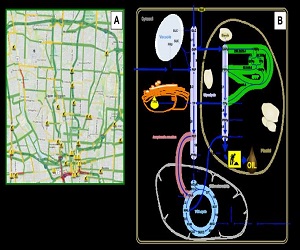
Ana Paula Alonso
The Ohio State University, USA
Title: A systems approach to improve oil synthesis in alternative crops
Biography
Biography: Ana Paula Alonso
Abstract
Statement of the Problem: Physaria fendleri is a Brassicaceae that produces hydroxy fatty acids (HFAs) in its embryos; a type of oil that is very valuable and widely used in the industry of cosmetics, lubricants, biofuels... The goal of this study is to design an effective strategy for improving HFAs production by Physaria. Indeed, free of toxins and rich in HFAs, Physaria is an attractive alternative to imported castor oil, and is hence in the verge of commercialization. Moreover, Physaria has tremendous potentials for oil production, has a short maturity time and is not used for food compared to other oilseed crops. HFA production could theoretically be enhanced by classical breeding or genetic engineering approaches, however a lack of knowledge of the metabolic pathways underlying oil synthesis in Physaria seeds presents a major constraint. This study aims to find potential biochemical step(s) that limit(s) oil synthesis, which will serve as targets for future crop improvement.
Methodology & Theoretical Orientation: To advance towards this goal, we determined the intracellular metabolite levels (metabolomics) in Physaria embryos at different stages of development. For this purpose, we have developed novel and highly sensitive methodologies using state-of-the-art liquid chromatography tandem mass spectrometry (LC-MS/MS). The contribution of each pathway to fatty acid synthesis in terms of carbon, reductant and energy provision is being assessed by measuring the carbon flow through the metabolic network.
Findings: The metabolomics study highlighted the metabolites and pathways that were active in Physaria embryos and important for oil production. We are now performing a 13oC-Metabolic Flux Analysis (fluxomics) to build a map of carbon flow through central metabolism.
Conclusion & Significance: This study describes the combination of innovative tools that will pave the way for controlling seed composition in promising alternative crops.


